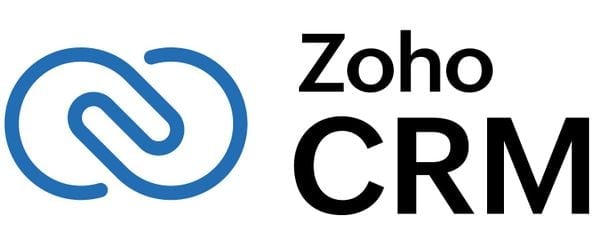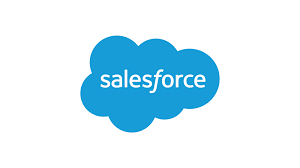Best CRM Software for Small Businesses

Many or all of the products featured here are from our partners who compensate us. This influences which products we write about and where and how the product appears on a page. However, this does not influence our evaluations. Our opinions are our own. Here is a list of our partners and here's how we make money.
Customer relationship management (CRM) software stores customer data and helps you manage your interactions with existing and potential customers. It can be used to build your contact database by collecting and organizing customer information from lead forms, landing pages, websites, social media and other digital means. The software may also include features that can help sales representatives initiate and track their interactions with customers.
The best CRM software helps you manage contacts, send emails, log customer contacts, generate reports and manage your sales pipeline.
Zoho CRM: Best overall
Pricing: A free version, as well as four paid plans, are available; pay monthly or receive a discount for annual billing.
Free version with limited features.
Standard: $20/user/month.
Professional: $35/user/month.
Enterprise: $50/user/month.
Ultimate: $65/user/month.
Zoho CRMShop Now on Zoho CRM's website |
Pros | Cons |
|---|---|
|
|
Feature overview: Zoho CRM offers the following features in their paid plans:
Collection, filtering and management of lead data.
Email template library.
Email notifications on opens, clicks and replies.
Sales forecasting, activity scheduling and lead scoring.
Ability to segment contact list (Enterprise and Ultimate plans).
Marketing attribution to measure impact of campaigns (Enterprise and Ultimate plans).
Reports and analytics.
Integrates with over 800 apps including social media platforms.
Basic support is available with all paid plans but has limits on the length and frequency of sessions. You can pay extra for premium support. Additional resources include tutorials, guides, videos, webinars, training programs and a community forum. Zoho also offers Bigin, a low-cost CRM platform with basic features for micro businesses.
Salesforce CRM: Best for growing small businesses
Pricing: Four plans designed for small businesses are available. All plans are billed annually.
Starter: $25/user/month (billed annually).
Sales Professional: $75/user/month (billed annually).
Service Professional: $75/user/month (billed annually).
Marketing Cloud Account Engagement: $1,250/month for up to 10,000 contacts (billed annually).
Salesforce CRMShop Now on Salesforce's website |
Pros | Cons |
|---|---|
|
|
Feature overview: Though priced the same, Sales Professional is geared toward automation while the Service Professional plan offers options that can help you engage and manage customer cases. Salesforce CRM plans include the following notable features:
Lead tracking and customer management.
Segmentation of contact lists.
Email templates.
Pipeline and forecast management (Professional plan and up).
Customizable reports and dashboard.
Mobile app for Android and Apple devices.
More than 7,000 integrations.
Customer support can be contacted by phone, chat or through a callback form, and 24/7 help is available at the Marketing Cloud plan level. Additional resources include guided journeys, workshops, training modules, videos and an online community.
Freshsales by Freshworks: Best low-cost option
Pricing: Free version along with three paid options; plans are discounted when you pay annually.
Free version with limited features.
Growth: $18/user/month (billed monthly).
Pro: $47/user/month (billed monthly).
Enterprise: $83/user/month (billed monthly).
Pros | Cons |
|---|---|
|
|
Feature overview: All plans include the following features and tools:
Contact management and engagement tracking.
Sales dashboard with custom sales activities.
Phone, email and customer chat capabilities.
AI chatbot for customer communication.
Two-way email sync.
Website integrations for forms and contact tracking.
Pre-built and custom reports.
More than 160 app integrations.
Customer support is offered 24 hours a day during the week, and a dedicated account manager is included with the Enterprise plan. Additional resources include blogs, videos, courses, certifications and an online community.
Monday Sales CRM: Best for customization
Monday Sales CRM plans are priced per user, but a minimum of three seats must be purchased with paid plans. Receive a discount when you pay annually.
Free version for qualifying students and nonprofits.
Basic: Starting at $37.50/month (billed monthly).
Standard: Starting at $51/month (billed monthly).
Pro: Starting at $90/month (billed monthly).
Enterprise: Quote-based pricing.
Monday sales CRMShop Now on Monday sales CRM's website |
Pros | Cons |
|---|---|
|
|
Feature overview: Some of the features offered by Monday Sales CRM paid plans:
Website forms to capture leads.
Customizable notifications.
Email templates (Pro plan and up).
Shared collaborative whiteboard for idea generation.
Lead management (Standard plan and up).
Email tracking and automations (Pro plan and up).
A variety of integrations, including marketing, software development and project management.
Customer support is offered through live chat, email and callbacks. Small-group training sessions on a variety of topics are regularly offered for Monday account holders. Additional resources include tutorials, guides, blogs and an online community.
Pipedrive: Best for flexibility
Pricing: Five plans are available; receive a discount when you pay annually.
Essential: $21.90/user/month (billed monthly).
Advanced: $37.90/user/month (billed monthly).
Professional: $59.90/user/month (billed monthly).
Power: $74.90/user/month (billed monthly).
Enterprise: $119/user/month (billed monthly).
Pros | Cons |
|---|---|
|
|
Feature overview: Pipedrive plans offer the following:
Lead and pipeline management.
Customizable email templates (Advanced plan and up).
Automated sales assistant performance suggestions.
Group emailing and email scheduling (Advanced plan and up).
Mobile app that is compatible with Android and iOS devices.
Deal and activity reports at all plan levels; forecasting starting at Professional level.
Over 400 integrations.
Add-ons to increase leads, identify website visitors and create email campaigns are available for an additional monthly fee. Support is offered all day, every day through live chat or email. Additional resources include video tutorials, setup guides, webinars, courses and an online community.
Insightly CRM: Best for core features
Pricing: Free version with three paid plans; annual billing only.
Free version with limited features.
Plus: $29/user/month (billed annually).
Professional: $49/user/month (billed annually).
Enterprise: $99/user/month (billed annually).
Pros | Cons |
|---|---|
|
|
Feature overview: Insightly offers a free plan with user, record and feature limits. Its paid plans include:
Lead management.
Email templates.
Contact list targeting.
Website lead information capture.
Mobile app.
Customizable reports.
Over 2,000 integrations.
Email and phone support are available for paid plans. Blogs, videos, e-books, demos and webinars are some additional resources offered.
What to look for in CRM software
When considering CRM software for your small business, the right product can depend on your marketing strategy and whether your focus is on your sales team, large email campaigns or building contact lists from web forms, for example. Here are some areas to focus on when evaluating products:
Cost
Most providers offer a number of plans that can allow you to scale up when necessary. You typically pay a monthly fee per user. Watch out for minimum user requirements so you don’t underestimate the full monthly cost. Discounts are common when you pay annually, but keep in mind that the fee isn’t always refundable if you want to cancel after a few months. A free trial is offered by some providers, which gives you the opportunity to test the product without a commitment. Free plans are another way to test products, but the features of these plans are typically limited.
Contact management
Contact management is at the core of the best CRM systems. Features such as automatic customer data syncs and website lead capture features can help you build your contact lists, while activity timelines that track emails sent, emails opened and website visits can help you manage your interactions with contacts.
Templates
If email campaigns are a large part of your marketing strategy, look for software that offers pre-built templates that can be emailed to contacts. Having the capability to customize templates is a bonus, allowing you to adjust your messaging based on your target audience. Features that let you send out individual emails or a large mass mailing can help you respond to individual customers or provide marketing to a large number of prospects.
Sales management
If you have a sales team, a CRM system with sales management features can help you maximize your team's efforts. For example, built-in phone, email and chat capabilities can make it easier to connect with leads that come through your website. And customer data syncs, customer tracking and notifications can help in building relationships with leads.
Reports and analytics
Pre-built reports, provided by most CRM software, may be all you need in some cases. However, businesses that have a large portion of their marketing budget tied to online sales will likely want the option to customize their reports. Also, businesses that use web forms to generate leads will likely be interested in software that can offer website analytics and anomaly detection.
Customer support
The support offered by CRM providers varies significantly. Some limit support to weekdays while others offer it 24/7. Chat and email support are common, while phone support is often only available at the top-tier plan levels. Each business will need to determine what level of support will work for its needs. One-on-one setup assistance isn’t common, so look for providers that offer help libraries, tutorials and training webinars to help you get the most out of the software.





